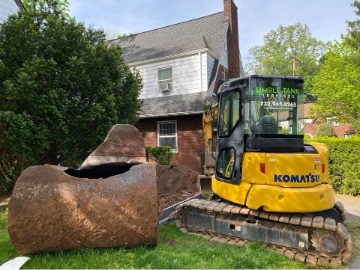Oil tank removal is a crucial process that ensures the safety of both the environment and the residents of New Jersey. With the potential environmental hazards associated with aging and corroded oil tanks, it becomes imperative to address the environmental impact of oil tank removal in the state. This article explores the significance of oil tank removal, emphasizing the role of oil tank removal companies in mitigating environmental risks.
Environmental Concerns Associated with Aging Oil Tanks
New Jersey, like many other states, has a history of residential and commercial properties relying on oil tanks for heating and other purposes. However, over time, these tanks can corrode, leading to leaks that pose serious environmental threats. Oil spills from deteriorating tanks can contaminate soil, groundwater, and surface water, harming plant and animal life while also impacting the health of nearby residents.
Understanding the Impact of Oil Tank Removal
Oil tank removal is a multifaceted process that involves assessing, decommissioning, and safely eliminating old or leaking tanks. One of the primary environmental benefits of oil tank removal is the prevention of soil and water contamination. By identifying and addressing potential leaks early on, oil tank removal companies play a crucial role in safeguarding New Jersey’s ecosystems.
Proper disposal of the removed tanks is equally important to minimize environmental impact. Reputable oil tank removal companies adhere to strict guidelines for recycling and disposing of tanks in an environmentally responsible manner. This includes recycling materials whenever possible and ensuring that hazardous waste is treated and disposed of in accordance with environmental regulations.
The Role of Oil Tank Removal Companies
Oil tank removal companies are instrumental in managing the environmental impact of oil tank removal in New Jersey. These companies employ skilled professionals who conduct thorough assessments to identify potential leaks and determine the best course of action. The use of advanced technologies and methodologies helps minimize the disturbance to the surrounding environment during the removal process.
Furthermore, oil tank removal companies often collaborate with environmental agencies to ensure compliance with state regulations. By obtaining necessary permits and adhering to established guidelines, these companies contribute to a seamless and environmentally conscious oil tank removal process.
Keywords and Environmental Stewardship
Oil tank removal companies play a pivotal role in maintaining environmental stewardship throughout the removal process. As the demand for these services grows, it is essential for companies to prioritize environmentally friendly practices. The careful integration of keywords, such as “oil tank removal company,” reflects a commitment to transparency and accessibility in promoting eco-friendly practices.
Conclusion
In conclusion, understanding the environmental impact of oil tank removal in New Jersey is essential for safeguarding the state’s ecosystems and ensuring the well-being of its residents. Oil tank removal companies, through their expertise and commitment to environmental stewardship, contribute significantly to the prevention of soil and water contamination. As the demand for oil tank removal services continues to rise, it is imperative for companies to prioritize eco-friendly practices, thereby fostering a sustainable and environmentally conscious approach to this essential process.

